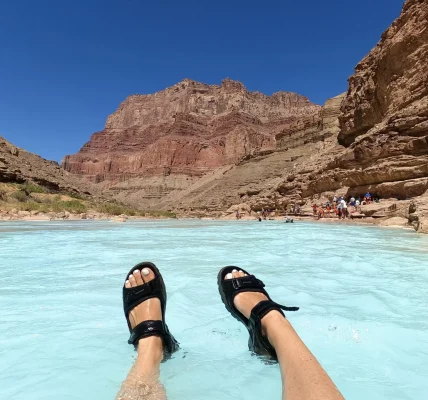Embarking on a safari is an unforgettable adventure, offering a close encounter with wildlife and breathtaking landscapes. Proper preparation is key to enjoying your trip to the fullest, and that includes considering your footwear. Whether you need hiking boots for a safari largely depends on the type of activities you plan to undertake and the terrain you’ll be traversing. This guide will explore the importance of appropriate footwear for your safari and help you decide if hiking boots are a necessary addition to your packing list.
Understanding Safari Terrain and Activities
The type of terrain and activities you’ll be engaged in during your safari are the biggest determinants of whether or not you’ll need hiking boots.
- Game Drives: If your safari primarily involves game drives in a vehicle, sturdy closed-toe shoes or comfortable walking shoes are usually sufficient.
- Walking Safaris: For walking safaris, which involve trekking through the bush, hiking boots are highly recommended.
- Mountain Hiking: If your safari includes any mountain hiking or climbing, supportive and durable hiking boots are essential.
Benefits of Wearing Hiking Boots on Safari
Even if your safari doesn’t explicitly involve hiking, there are several benefits to wearing hiking boots.
Hiking boots offer excellent ankle support, protecting you from twists and sprains, especially on uneven terrain. They also provide superior traction, which can be crucial in slippery or muddy conditions.
Ankle Support and Stability
Ankle support is paramount when navigating unpredictable landscapes. Hiking boots provide the necessary stability to prevent injuries.
Protection from the Elements and Wildlife
Beyond terrain, hiking boots can offer protection from other elements.
They shield your feet from thorns, insects, and even small wildlife encounters. The tough material can prevent cuts and scrapes, and some boots are even waterproof, keeping your feet dry in wet conditions.
Alternatives to Hiking Boots
If you’re hesitant to invest in hiking boots, there are alternative footwear options to consider.
Depending on your planned activities, you might be able to get away with sturdy trail running shoes or durable walking shoes. However, these options may not offer the same level of ankle support and protection as hiking boots.
Trail Running Shoes
Lightweight and breathable, trail running shoes can be a good option for shorter walks on relatively even ground. However, they offer less ankle support than hiking boots.
Durable Walking Shoes
Durable walking shoes provide decent support and protection for game drives and light walks. They are a comfortable alternative to hiking boots if you are not planning on hiking or climbing.
FAQ: Safari Footwear
Here are some frequently asked questions about footwear for safaris.
| Question | Answer |
|---|---|
| Are sandals appropriate for safari? | Sandals are generally not recommended, as they offer little protection from the elements and wildlife. |
| What kind of socks should I wear with hiking boots? | Wear moisture-wicking socks to prevent blisters and keep your feet dry. Wool or synthetic blends are good choices. |
| How do I break in my hiking boots before my safari? | Wear your hiking boots around the house and on short walks for several weeks before your trip to prevent blisters and discomfort. |
| Are there any specific brands of hiking boots recommended for safari? | Popular and reliable brands include Merrell, Salomon, Keen, and Columbia. Choose a brand and model that fits your foot well and suits the terrain you expect to encounter. |
Choosing the right footwear for your safari is a crucial step in ensuring a comfortable and enjoyable experience. While hiking boots might seem like overkill for some, they offer unparalleled protection and support, especially if you plan to do any walking or trekking. Consider your itinerary, the terrain you’ll be traversing, and your personal preferences when making your decision. Prioritizing foot comfort will allow you to focus on the amazing wildlife encounters and stunning scenery that await you on your safari adventure. Remember to break in any new boots before your trip to avoid blisters and discomfort. Safe travels and happy safariing!

